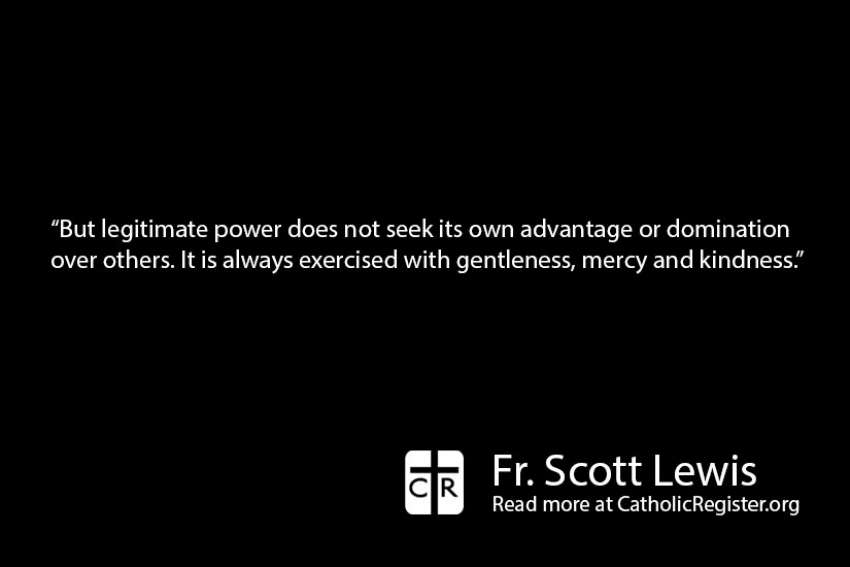True righteousness is always manifested as kindness, patience and mercy. The Book of Wisdom insists the source of God’s patience, gentleness and mercy is God’s strength and power. Humans tend to view strength and power as an instrument or weapon to be exercised over others. But legitimate power does not seek its own advantage or domination over others. It is always exercised with gentleness, mercy and kindness.
Most political leaders and nations have failed to understand or take to heart this principle. The blame doesn’t stop there, for many people are still addicted to expressions of raw power and to the myth of redemptive violence. Just look at our cultural heroes, traditions and forms of entertainment.
God teaches us to be kind by example. Humans are the ones responsible for turning the image of God into one of fear, punishment and violence. Wisdom also praises God whose care is for all people. This was difficult for some to accept back then and remains so today. They see God in human terms — God loves and cares for those like them or who belong to the same group. Along with this is the conviction that they have a special claim on God.
The expansive and progressive theological movement we know as Wisdom began to fashion a new and universal understanding of God in the two or three centuries before Christ. The Wisdom tradition has much to teach us today, but wisdom only works when we approach it with an open heart and mind.
We do not know how to pray as we ought. That says it all, and it expresses on behalf of so many people a sense of disappointment and frustration. What is the “correct” method of prayer? What words should be used? Paul advises us to leave much of it to the Spirit, that part of God that searches the deepest recesses of our hearts and minds.
The most eloquent form of prayer is often silence, something very difficult for modern people. A heart open to the Spirit will not be disappointed. The Spirit will teach us to listen to a deeper language — feelings, symbols, thoughts and the whispering of the heart and soul. We do not know how to pray well, but the Spirit does.
The world is often a brutal and ugly place. It has always been so, and people have always sought reasons and solutions. Why doesn’t God do something? Why can’t the evil people simply be removed? In a series of parables, Jesus explained how God works in our world and the role that evil plays.
The servants in the parable wanted to uproot the weeds, but the householder refused their request. The weeds and the good wheat were closely intertwined; to uproot the weeds would destroy the grain, too. Good and evil are also bound together in our world — nothing is totally good or evil.
The odd symbiotic relationship runs through societies, institutions, governments, structures and even through every human person. The lives of many of our saints were a mixture of light and darkness. In a weird sort of way, the evil even has a role to play. Without darkness, we would not know what light is. Without evil, we would have nothing to struggle with in our growth and transformation towards the light.
To be sure, we do and should work towards a world of peace and justice, but with patience and balance. Humanity has been the victim of far too many movements, ideologies and zealous “reformers” who have tried to uproot and totally destroy their perception of evil. Final cleansing and judgment is God’s job, not ours.
The mustard seed reminds us that momentous transformations and changes have very small and seeming insignificant beginnings. The missing ingredient is often patience, which is more than a nice virtue. It is something we must develop if there is any hope of happiness or human flourishing in our world.


